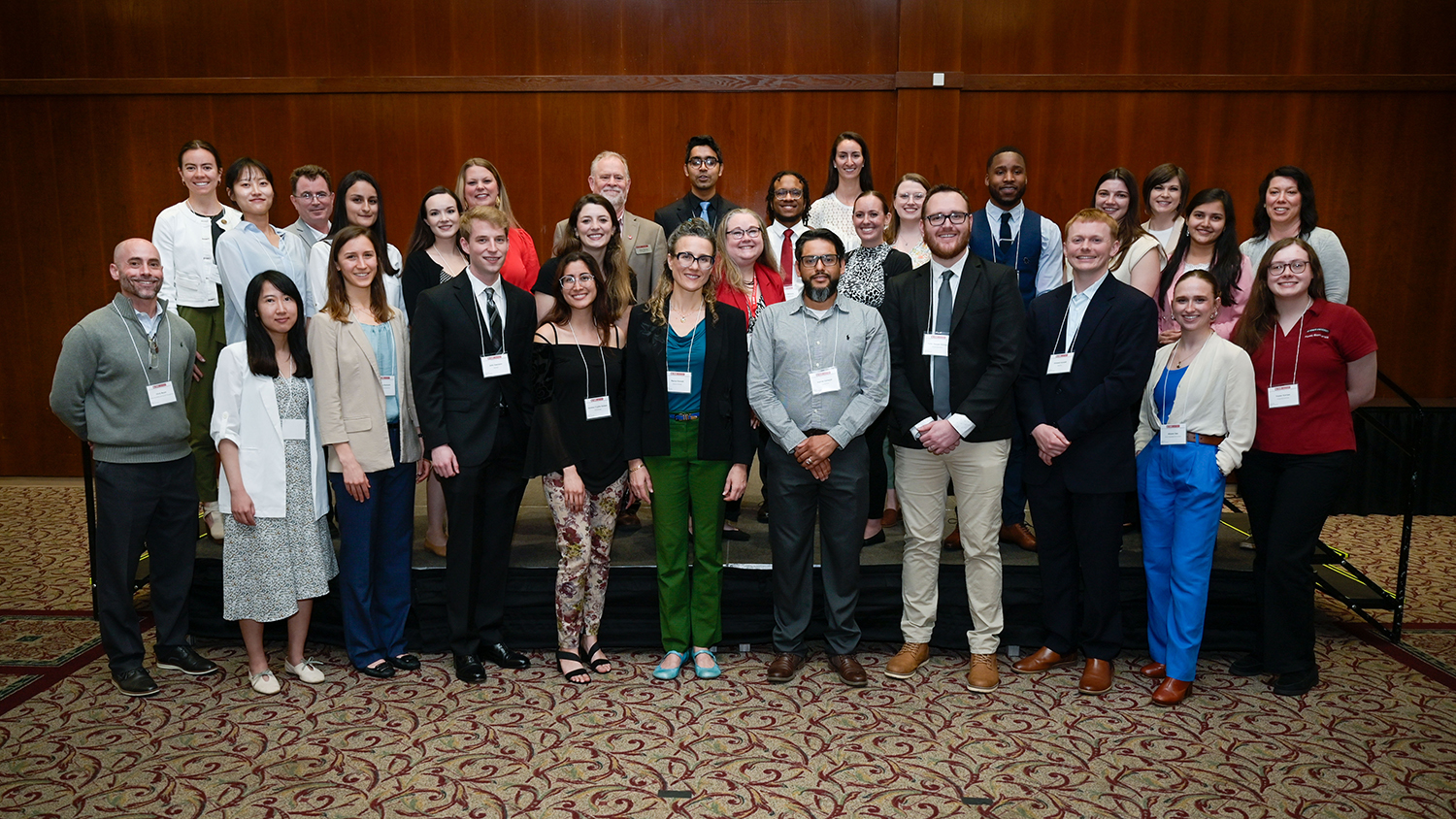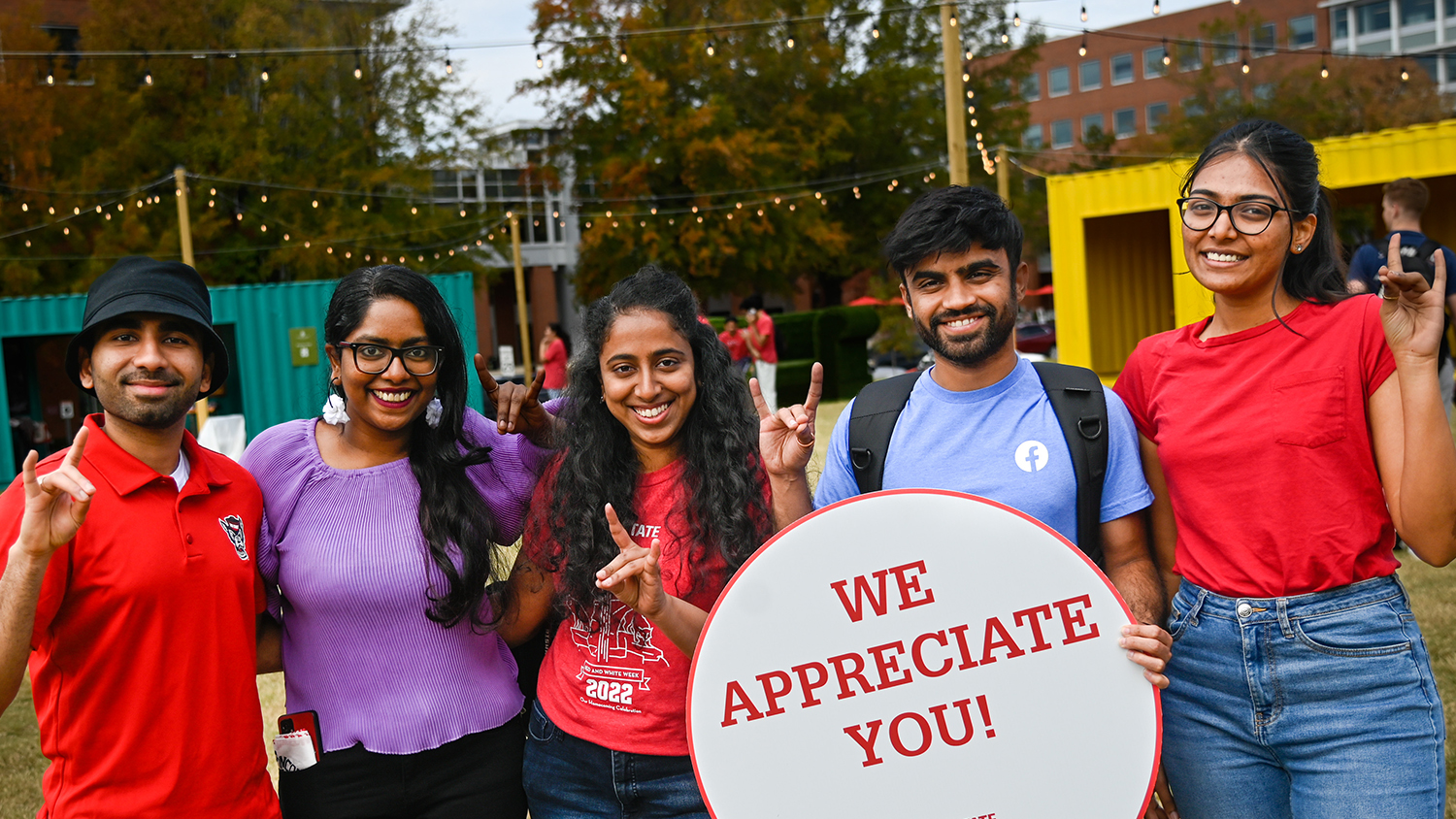Shahnee Haire

Reaching Higher Ground: Extending Aid to Flood Victims
Hurricane Matthew blew into North Carolina in October, on the heels of epic storms that had already dumped heavy rain in counties upriver from Lumberton. Within a few days, the huge volume of water from the two events breached a dike in downtown Lumberton, forcing nearly 2,000 people from their homes and into shelters.
NC State graduate student Shahnee Haire, who was a regional public health educator coordinator based in Robeson County during the hurricane, saw the human side of the disaster first hand while working in an emergency shelter in St. Pauls. Along with other county employees, she helped people displaced by flooding who had lost everything and had no place else to go.
She remembers the story one resident told her—how the woman had gone to her car, parked outside her home, and noticed a small amount of water creeping into the driveway. When she came out a short time later, the water was deeper.
“She noticed that the water was rising and that it was closer to her car,” Haire said, recalling the woman’s story. “She was living in a retirement community, so she called 911, but it was hard to get through because there were others calling.”
The woman alerted the other residents to the situation. “They all went to the road because it was dry there—they waited for several hours for someone to come and get them. All of them were safe, and they all stayed in one of the shelters,” Haire said.
This was just one of the stories Haire heard in the shelter from residents displaced by the flooding. And when her work hours there were over, she returned as a volunteer. “I took my fingernail
polish so I could go out and help paint nails for kids, parents, just something to lift spirits and help with self-esteem,” she said.
She also helped Matthew victims to file their paperwork with insurance companies and with the Federal Emergency Management Agency.
Helping out was something that comes natural for Haire. In her role as a regional public health educator, she served nine counties, working with schools, health departments, and neighborhoods to reduce childhood obesity by increasing opportunities for physical activity, such as walking and biking. She recently changed positions and now works with the N.C. Department of Health and
Human Services, Division of Public Health.
She also runs a youth development organization that she developed called WOW—Workshops on Wheels. The organization provides workshops for underserved youth in Robeson, Cumberland, Columbus and Durham counties on topics ranging from health and bullying prevention, to healthy relationships.
As a student in the youth, family, and community sciences graduate certificate program, Haire has learned skills that helped her professionally, especially while working with flood victims.
“One class I had was all about being able to relate to all ages, multi-generational homes,” she said. It helped her to understand the complexities of homes where older adults or grandparents were raising grandchildren. She could understand the importance of finding activities to keep children and youth engaged, in order to give their parents and caregivers “time to figure out what’s next,” Haire said.
After Hurricane Matthew, the scene in the local emergency shelters was surreal, filled with people from all walks of life who had lost everything, Haire said. “It was very touching to hear people’s stories—these were just regular, normal people who lost a home.”
Though the flooding brought hardship to many in eastern North Carolina, it also brought out the best in people, Haire observed.
“At the St. Pauls shelter, the mayor came by. The military and the Red Cross brought in cots; people in the community brought cots. People donated items—thousands of new pillows, blankets, clothing, Pampers, toiletries,” she said.
She continues to support flood victims, many of whom were still living in hotels and motels as of March, unable to return to their homes. The youth in her WOW program were getting ready to collect toothbrushes and toothpaste for flood victims.
WOW is also partnering with another program, Youth Empowered Solutions—YES—to increase the number of healthy corner stores in rural North Carolina. Youth will learn advocacy skills by contacting their legislators to find ways to reduce food deserts in their communities.
“So we have youth in two rural counties in North Carolina who will learn how to reach out to their legislators to decrease food deserts in their area, to make sure there are more healthy options,” Haire said. “The youth get communication skills during these workshops, they’ll be able to learn to work as a team to accomplish a goal, what are healthy corner stores, and they’ll learn how policy effects their day-to-day lives.”
Haire chose NC State’s certificate program in youth, family, and community sciences because it offered instruction that supports her passion for working with youth.
“I wondered how could I link my business, my passion for public health to youth. That’s what brought me to NC State.”
As a part-time student taking one to two courses at a time, Haire isn’t sure when she will complete her certificate. She’s grateful for the flexibility and opportunities that her graduate program provides, and she plans to apply for the master’s program in the fall.
“So far I’ve enjoyed the program I’m in. I enjoy that it’s distance learning. There’s a lot going on, but I’m able to stay engaged in class and learn, and I don’t feel overwhelmed,” she said.
Read more from the Graduate School’s Think Magazine.
Learn more about certificate programs in youth, family, and community sciences.
Download this article as a PDF.
- Categories:


